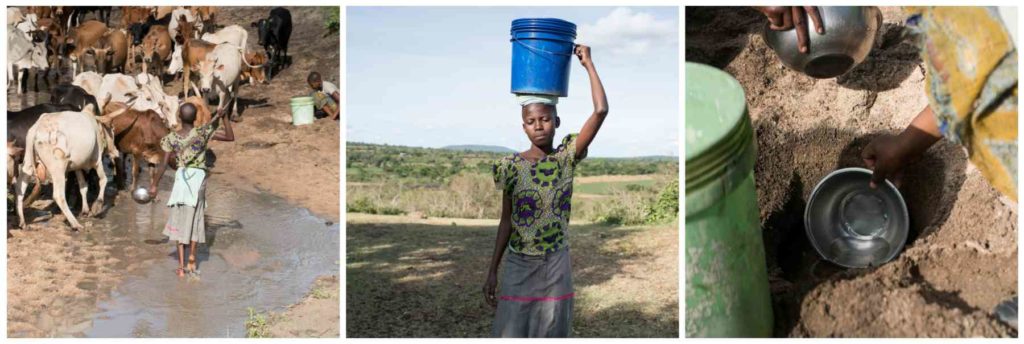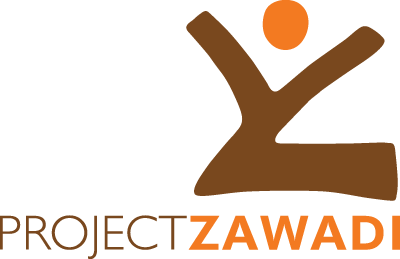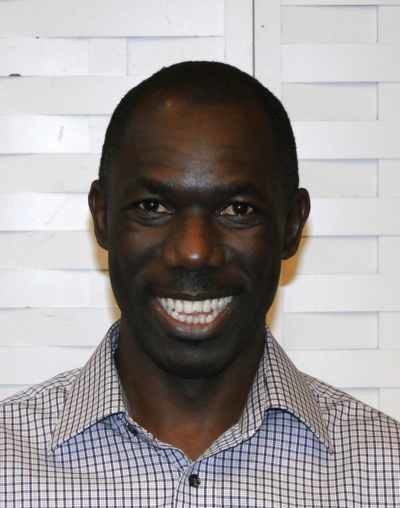Water Shortage in Rural Tanzania
A Note From Executive Director Brian Singer:
Josephat Mboyi has provided many years of valuable guidance to Project Zawadi as a board member and advisor. Born and raised in Nyamuswa, Josephat provides a salient perspective to the challenges the community faces. As we near our goal for the Community Vision Campaign 2020: Access to Clean Water, we wish to share Josephat’s account of the impacts of the lack of water in rural communities in Tanzania.
Josephat first wrote about this issue in 2012. Access to clean water has not significantly changed in the last 8 years. With your help, we can develop clean water solutions at four Model Schools and serve over 10,000 people for years to come.
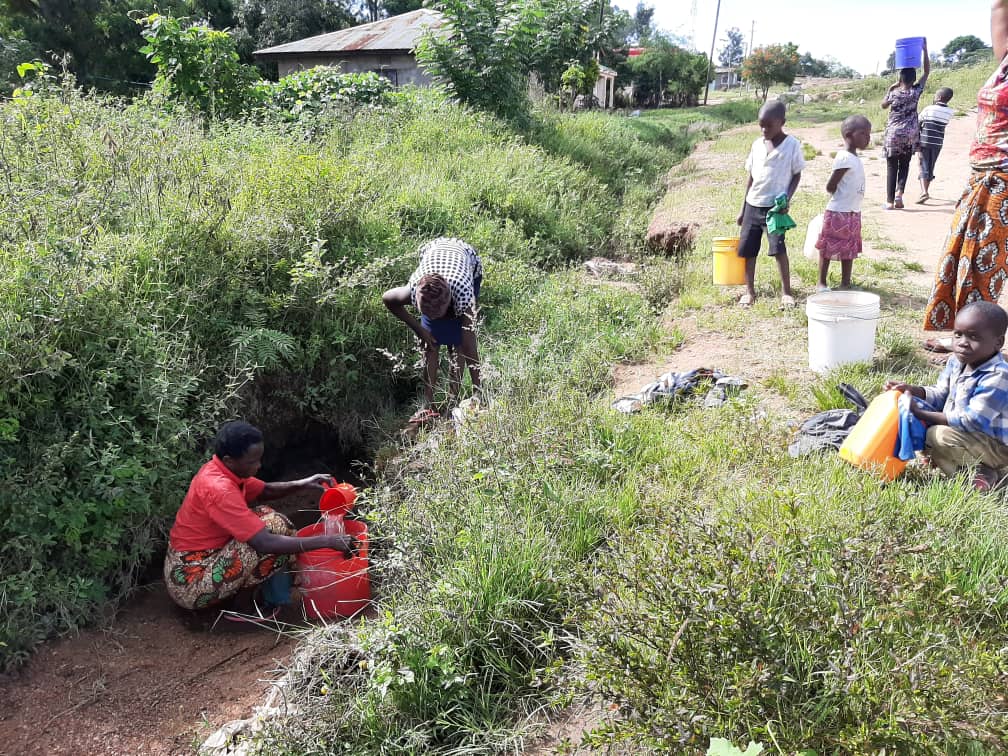 Water shortage in Tanzania has been a problem for years now, the problem is even bigger in rural villages. According to WHO, one out of six people lack access to safe drinking water in Tanzania (WHO/UNICEF, 2004). It has been well documented that the water shortage has been caused by population growth, high level consumption and climate change which has reduced the resource of water.
Water shortage in Tanzania has been a problem for years now, the problem is even bigger in rural villages. According to WHO, one out of six people lack access to safe drinking water in Tanzania (WHO/UNICEF, 2004). It has been well documented that the water shortage has been caused by population growth, high level consumption and climate change which has reduced the resource of water.
In villages like Nyamuswa where I grew up, water shortage is a big problem especially in dry season. During this time women and children wake up at 5 am and walk for long distances to find water. This chronic water shortage causes a serious concern. Studies show that in rural Tanzania people walk for 2 to 3 km daily in search of water from public taps where available, or natural streams and carrying heavy containers on their heads of about 20 to 25 litres per trip.
There is another problem of long lines at the point of water tap or boreholes where people spend hours to wait for their turn. Apart from stagnating economic activities in these communities, it is scary if the water sources happen to have any kind of contamination, then the whole village will be at risk.
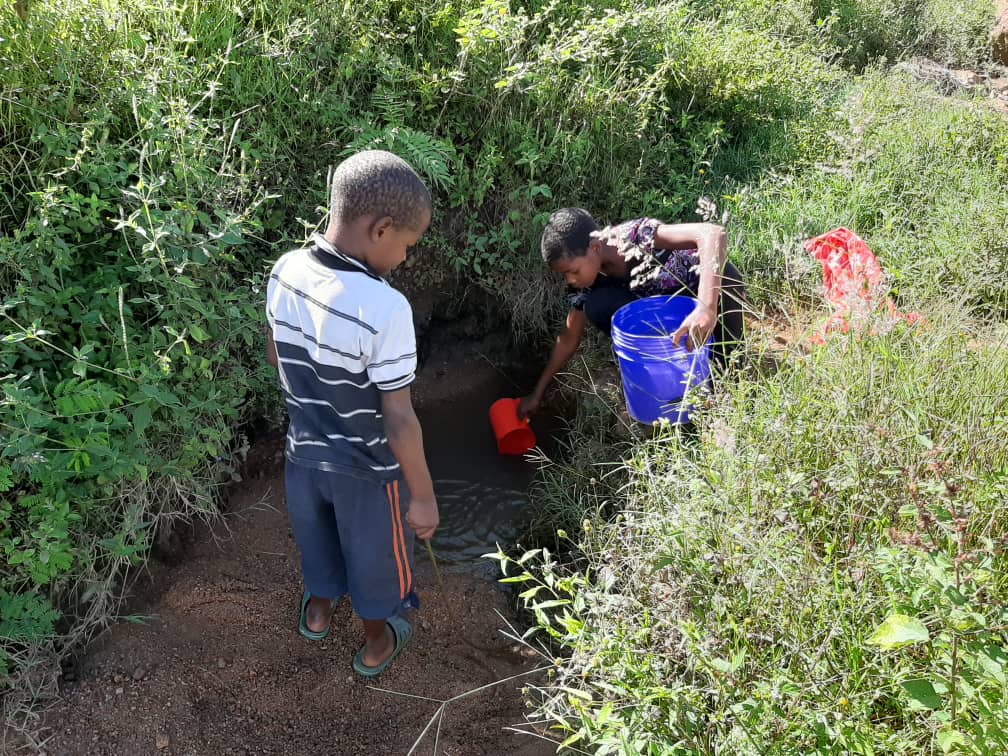 In rural areas only about 44% of people in 2010 had access to water (Ministry of Water). Mothers in rural areas with babies on their back still walk long distances in search of water to use in their daily activities like cooking, washing and drinking. Some women must wait hours to fill their water buckets early in the morning.
In rural areas only about 44% of people in 2010 had access to water (Ministry of Water). Mothers in rural areas with babies on their back still walk long distances in search of water to use in their daily activities like cooking, washing and drinking. Some women must wait hours to fill their water buckets early in the morning.
Water shortage leads to poor sanitation, lack of safe drinking water, and overcrowding at water sources. This a perfect combination for epidemics of infectious diseases like cholera, typhoid and diarrhea. As people spend most of their time to fetch water, other economic activities stall and contribute to poverty. A teacher in Nyamuswa told me that during the dry season, they see attendance at school drop, especially for girls, as they help their parents by fetching water. As we all know, absenteeism is one of the key factors leading to poor performance at school.
We need to develop a know-how at the local level. We need water technicians to survey at villages to locate areas where safe and clean water can be obtained. NGOs can help in this area as local authorities don’t have enough funds allocated to them from district levels. Supporting NGOs to do this work will help expand the number of available water sources in these rural areas.
Evaluation, monitoring and protecting water resources is also very important. When I was growing up in Nyamuswa, there were 3 big sources of water, today only one has remained due to drought and many people farm upstream of these sources. Education is needed in safeguarding these natural water sources in the area.
We ask everybody to join in our effort to increase water supply in Nyamuswa area.
– Josephat Mboyi
If you have already contributed to the Community Vision Campaign 2020: Access to Clean Water, thank you. If you have not yet had the chance, please consider a donation of any amount before Sunday, May 31st. All donations are being doubled by a generous group of matching gift donors.
Click here to donate
